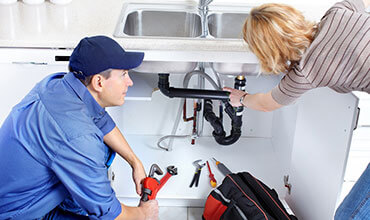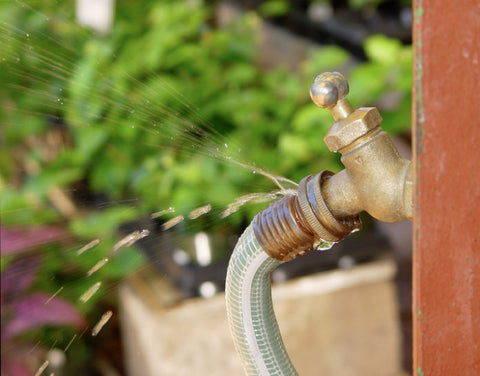This great article down below pertaining to How to Prevent Frozen Pipes is quite compelling. Read it yourself and decide what you think of it.

All home owners who live in temperate climates should do their finest to winterize their pipes. Failure to do so can mean calamity like frozen, broken, or ruptured pipelines.
Turn On the Faucets
When the temperature level drops as well as it seems as if the icy temperature will last, it will certainly aid to turn on your water both inside and outdoors. This will certainly keep the water moving with your plumbing systems. You'll finish up losing gallons of water this method.
Open Closet Doors Hiding Plumbing
When it's chilly outside, it would be practical to open cabinet doors that are masking your pipes. Doing this small method can keep your pipes cozy and also restrict the potentially harmful results of freezing temperature levels.
Take Time to Cover Exposed Pipeline
One easy and great hack to warm up frigid pipes is to wrap them with cozy towels. You can additionally utilize pre-soaked towels in hot water, simply don't fail to remember to wear protective gloves to protect your hands from the warmth.
Try a Hair Clothes Dryer or Warmth Weapon
When your pipelines are nearly freezing, your dependable hair clothes dryer or warmth gun is a blessing. If the hot towels do not aid displace any resolving ice in your pipes, bowling hot air directly right into them may aid. Do not use other things that create direct fires like a blow lantern. This can result in a larger catastrophe that you can not manage. You might end up destructive your pipelines while attempting to melt the ice. And also in the long run, you might even wind up burning your residence. So be careful!
When Pipelines are Frozen, close Off Water
Shut off the primary water valve right away if you discover that your pipes are completely frozen or practically nearing that phase. You will usually discover this in your cellar or utility room near the heating unit or the front wall surface closest to the street. Turn it off right now to prevent additional damages.
Don't forget to close outside water resources, as well, such as your connection for the yard home. Doing this will protect against extra water from filling up your plumbing system. With even more water, even more ice will certainly pile up, which will ultimately lead to burst pipelines. It is best to call an expert plumber for an examination if you are unsure regarding the state of your pipes this wintertime. Taking this proactive method can save you hundreds of bucks out of commission.
All house owners that live in temperate climates have to do their finest to winterize their pipes. Failing to do so can lead to catastrophe like frozen, cracked, or ruptured pipes. If the warm towels do not aid remove any settling ice in your pipelines, bowling warm air straight into them may help. Turn off the main water valve immediately if you notice that your pipelines are entirely icy or practically nearing that stage. With more water, even more ice will pile up, which will at some point lead to break pipes.
PREVENT YOUR PIPES FROM FREEZING THIS WINTER
A Leading Cause of Property Damage
When the weather is taking a deep nose dive into the cold dreary days, the risk of your pipes freezing and potentially bursting skyrockets. Unfortunately, during these cold dreary months, burst pipes are the most common denominator for property damage. The pipes that are most at the risk are those that are in areas where it is most cold in your home. For instance, pipes located in interior places such as basements, attics, and your garage. Unfortunately, that doesn’t mean that the pipes running through your cabinets or exterior walls can’t freeze. Good news, however, is that you can do things to help prevent pipes from freezing.
How to Prevent Pipes From Freezing
Once the temperature starts to drop during the winter, you should be taking the proper measures needed to ensure that your pipes stay warm and that there is circulation of water through them. Some steps that experts may recommend could go against your better judgement when it comes to saving water and heat. However, it would go without saying that when expenses are compared, damaged pipes could put a bigger dent in your wallet than a water bill.
What Can I Do?
Keep your garage door closed. This is very important, especially if you have water supply lines running through your garage. Open your kitchen and bathroom cabinets to allow warm air to circulate through them. Allow air circulation throughout your home. Keeping the interior doors open will once again allow the warm air to circulate inside your home. Ensure your thermostat is running the same temperature throughout the night and day. If you plan to be away from home during the cold months, set your temperature no lower than 55° F. This should provide enough heat to keep the pipes warm and prevent any remaining water inside the pipes from freezing. For more of a long-term solution, add insulation to attics, basement, and other crawl spaces around your home. By allowing your faucet to drip, it will alleviate pressure in the system. This is important because the pressure that is created between the blockage and the faucet can potentially cause the pipes to burst. Allowing the faucet to drip will prevent the pressure from building up, therefore keeping the pipes from bursting. Seal any cracks, openings, and crawl spaces around your home to prevent cold air from coming inside. This keeps your pipes-not to mention your home-warmer and less susceptible to issues caused by freezing temperatures. For the pipes in your home that are easily accessible, applying electrical tape to them might prevent them from freezing over. This is a quick fix, as you can apply the tape directly to the pipe. There are two options for heating tapes. One turns on and off by itself when it senses heat is needed. The other type of heating tape needs to be applied when heat is needed and removed when not necessary. If you have exposed pipes in your home, you can check this website to take a look at a few options that would be available at a shop near you.

I was shown that editorial about How to Prevent Frozen Pipes from a friend on a different website. I beg you take the time to share this blog post if you enjoyed it. I am grateful for your time. Kindly pay a visit to our blog back soon.
Call Today